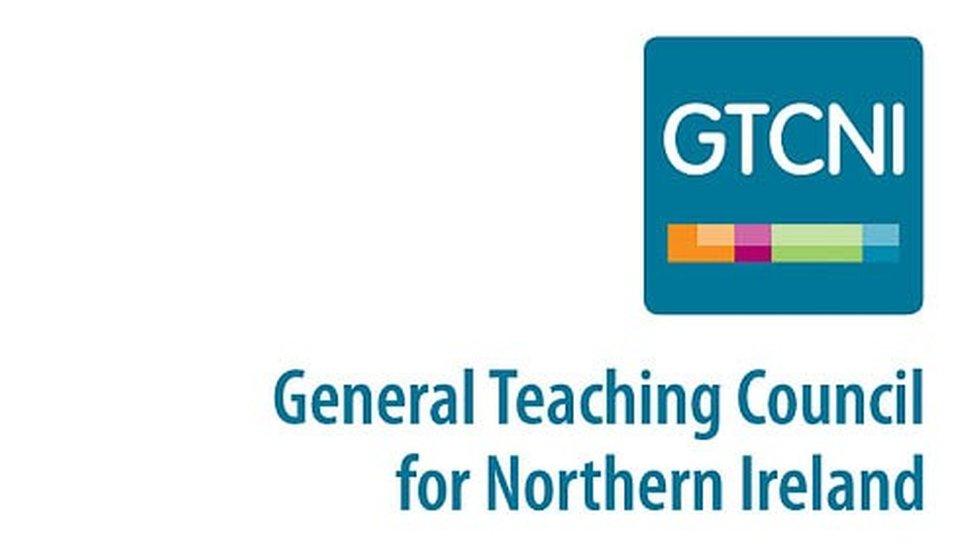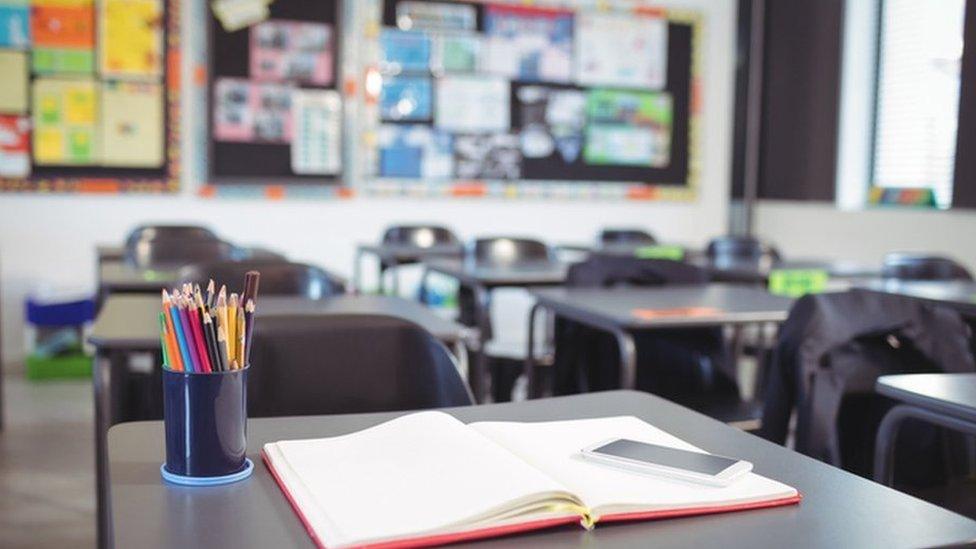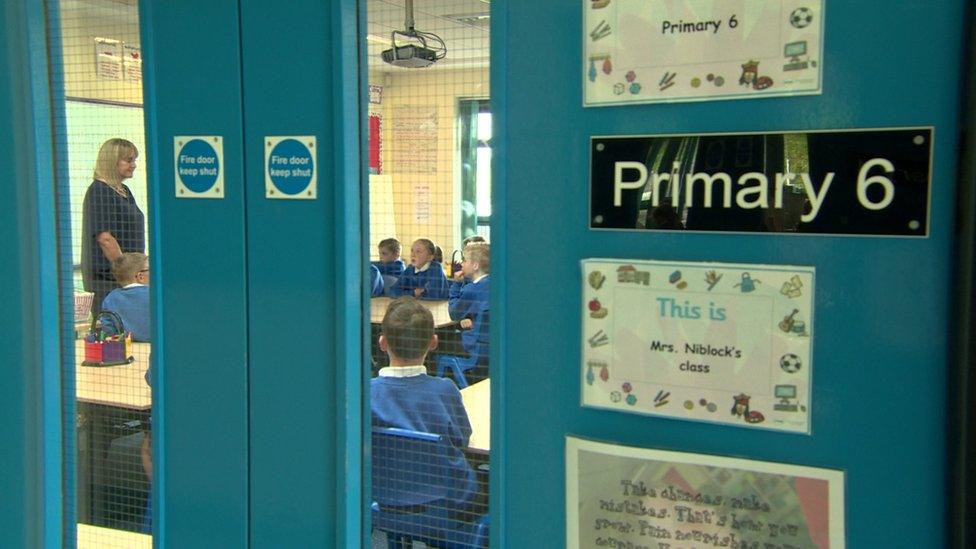Bullying claims at General Teaching Council for Northern Ireland
- Published

The General Teaching Council is the body which upholds teaching standards.
More than half the staff in Northern Ireland's professional body for teachers have said they are "always, often or sometimes bullied at work".
Ten of 17 staff who took part in the investigation into the General Teaching Council for Northern Ireland (GTCNI) said they had been bullied.
Staff reported "a culture of criticism and ridicule" within the organisation, according to the investigation report.
GTCNI said the welfare of staff was "of utmost importance".
The teaching body has 19 staff - 15 women and four men - including chief executive Sam Gallaher, who took up his post in August 2018.
It both registers and upholds standards for teachers in Northern Ireland and is a non-department public body (NDPB) of the Department of Education (DE).
All teachers must be registered with the GTCNI to teach in Northern Ireland and pay an annual fee of £44.
In 2017-18, 26,817 teachers were registered, generating an income of £1.15m.

In June 2019, the GTCNI's 33-member council appointed an external HR consultancy called Headstogether to conduct an investigation into workplace issues and behaviours among staff.
That followed the council receiving the results of a previous survey conducted in April and May 2019 by the trade union NIPSA, which represents 15 staff in GTC NI.
In that NIPSA survey, more than half of respondents reported being bullied and 80% described their working relationship with management as "poor or very poor".
The external consultant subsequently conducted an online survey of GTCNI staff which involved a detailed questionnaire on a range of issues. Comments from staff were also sought.
Seventeen GTCNI staff responded to the survey.
'Zero empathy'
In the consultant's subsequent report, which has been seen by BBC News NI, multiple areas where "urgent action" was needed were highlighted.
That was, for example, the case when GTCNI staff were asked questions about their experience of harassment, bullying and other aspects of workplace relationships.
"58.8% of staff reported that they are always, often or sometimes bullied at work," the reported stated.
"Staff feel there is zero empathy, respect, transparency or integrity.
"There were a number of comments which included a culture of bullying, harassment and intimidation, and that this also extended to council members."

Some staff, however, said they had never experienced harassment or unkind words from any council members.
"The comments highlight clear trust issues between staff and the chief executive and also between staff and managers," the Headstogether report said.
The report also included allegations from some staff about the chief executive's behaviour.
It said: "Other comments noted that harassment may be too strong but personal space is invaded and there have been instances of inappropriate contact (for example putting hands on shoulders) and inappropriate jokes by the chief executive.
"Significant issues have been raised about the chief executive both in terms of alleged bullying/inappropriate behaviours and not listening to staff," the report concluded.
'Appropriate action'
When contacted by BBC News NI, Mr Gallaher did not comment on the specific allegations in the report regarding him.
He said in a statement: "The welfare of all staff is considered of utmost importance by the council.
"The Council commissioned a staff survey undertaken by its HR advisers.
"Their report is presently being considered and relevant and appropriate action is under way.
"It would be inappropriate to expand on this further at this time."
'Strained relationships'
The investigation report did say some of the "perceived issues in relation to behaviours are long standing and pre-date the current chief executive".
The report said: "It is clear from the survey comments that relationships with the chief executive are strained, however there is also tension and strained relationships with other managers.
"Examples quoted included manipulative behaviour, being shouted at, emotional bullying and subtle put downs."
The report noted: "There are clear trust issues within the organisation as a result of managers ignoring reported inappropriate behaviours and a reluctance to have difficult conversations.
"Reported displays of unwanted contact, bullying behaviour and inappropriate comments were not tackled by senior management at any level, which resulted in NIPSA involvement."
Active investigation
In a statement, the Department of Education (DE) said that whistleblowing concerns relating to the GTCNI had been raised with it.
A spokesperson said: "DE takes all whistleblowing matters very seriously and investigates each in line with the established departmental whistleblowing policy,
"We take care in every case to protect both the identity of the whistleblower and the integrity of the investigation and, accordingly, we will not comment further, other than to confirm that all current whistleblowing concerns are under active investigation by the department's internal audit team."
This is not the first time that problems have been identified within GTCNI.
It was previously put into "special measures" in December 2015 by the Department of Education due to a number of governance issues.
However, DE judged that the GTCNI had made enough progress to be taken out of special measures in September 2017.
- Published12 January 2016
